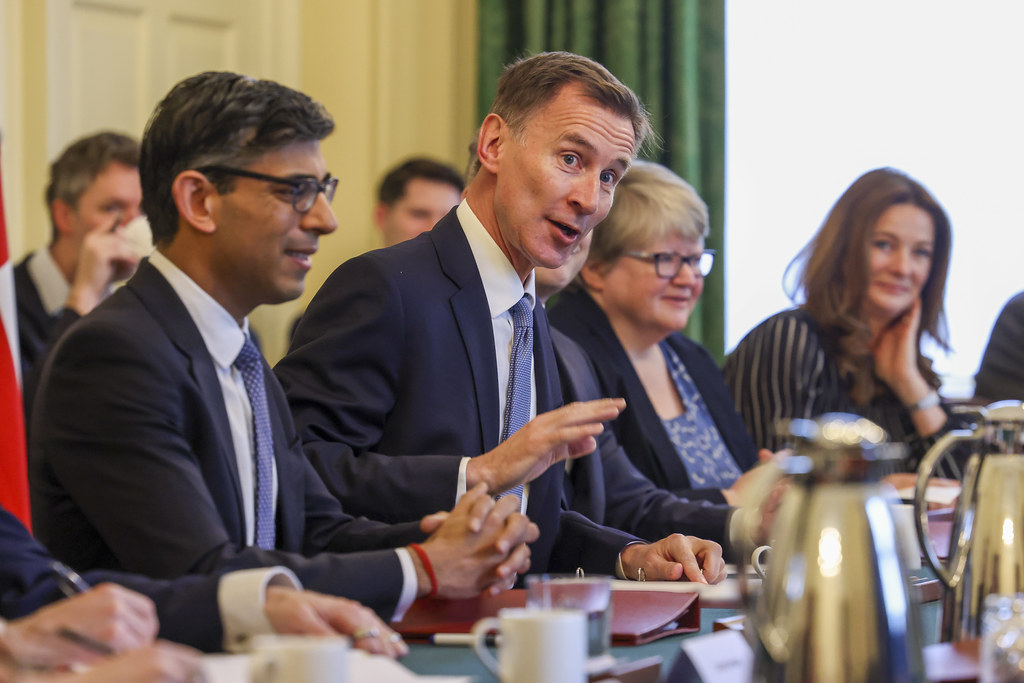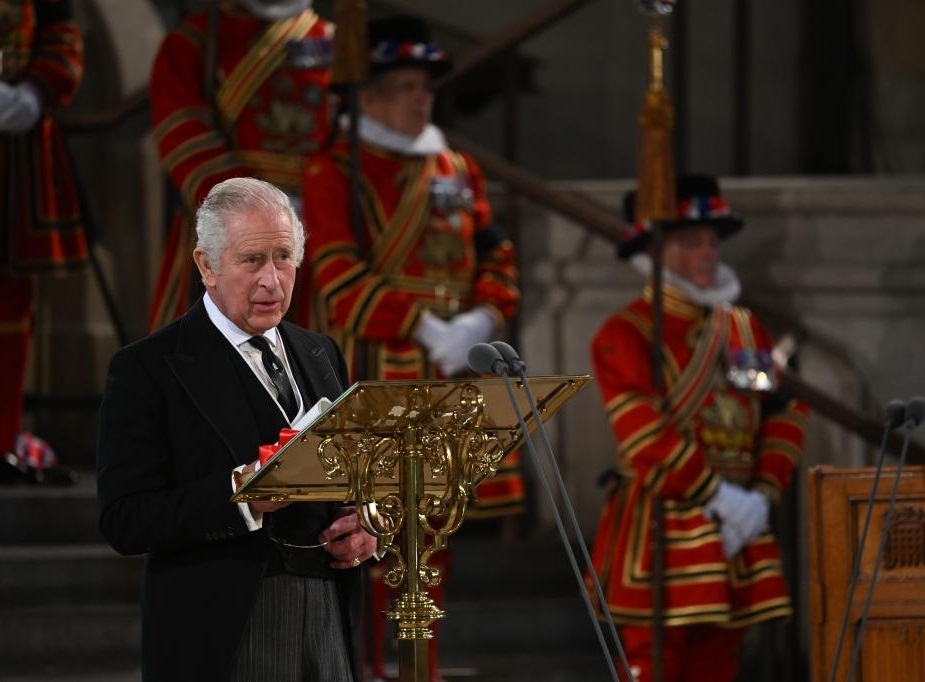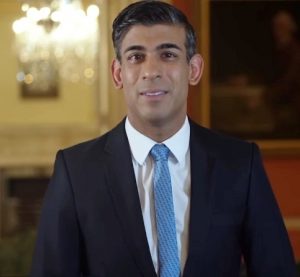Government said it would extend a subsidy on energy bills for a further three months after the invasion of Ukraine sent fuel prices surging…reports Asian Lite News
Britain on Wednesday said its cost-of-living support for this year and next would total £94 billion ($114 billion), as it forecast the UK to stay out of recession with inflation slowing sharply.
“In the face of a cost-of-living crisis… we have demonstrated our values by protecting struggling families,” finance minister Jeremy Hunt said in a budget speech outlining extra support especially for energy bills and childcare.
It came as teachers, junior doctors, civil servants, BBC journalists and drivers on London’s underground Tube railway staged the latest day of mass walkouts.
Hundreds and thousands of public and private sector workers show little sign of ending strike action that began last year when rocketing inflation slashed the value of wages.
“High inflation is the root cause of the strikes we have seen in recent months,” Chancellor of the Exchequer Hunt told parliament.
“We will continue to work hard to settle those disputes but only in a way that does not fuel inflation.”
UK inflation remains above 10 percent but should cool to 2.9 percent by year-end, Mr Hunt said.
He added: “The UK will not… enter a technical recession this year” after narrowly avoiding two successive quarters of contraction in 2022.
The government said it would extend a subsidy on energy bills for a further three months after the invasion of Ukraine by oil and gas producer Russia sent them surging.
“Continuing to hold down energy bills is part of our plan to help hardworking families with the cost of living and halve inflation this year,” Prime Minister Rishi Sunak said in a statement preceding the formal budget announcement.
The Conservative administration also announced increased childcare funding and other actions aimed at encouraging parents, the over-50s and others back into the jobs market.
It is looking to fill 1.1 million staff vacancies — in part caused by a lack of EU workers following Brexit and owing to a record number of people classed as long-term sick.
Pensions
The chancellor confirmed that workers could put more tax-free money into their private pensions, even if many will not have the disposable income to do so.
“Reports of senior doctors retiring early due to the impact of pension tax allowances… have undoubtedly been of particular concern to the government given the pressures already on the health system following the pandemic,” noted Tom Selby, head of retirement policy at AJ Bell.
In neighbouring France, the Senate at the weekend voted to approve a deeply unpopular reform to the country’s pension system.
The headline measure is a hike in the minimum retirement age to 64 from 62, seen by many as unfair to people who started working young.
Britain’s retirement age of 66 is set to increase before the end of the decade, meaning a longer wait to access the state pension. Private pensions are available at an earlier age.
More defence spend
Jeremy Hunt has insisted the government must keep a tight rein on spending after debt jumped as a result of the Covid pandemic.
However, on Wednesday he confirmed defence spending would increase by £11 billion over the next five years.
Hunt has also outlined a 20-year plan to capture carbon and commit to nuclear energy as it strengthens energy supplies and seeks a net zero economy by mid-century.
Labor shortages
Labor shortages are also a huge constraint on economic growth, and Hunt announced a raft of measures to encourage parents, retirees and those with disabilities or in poor health back into work.
There are currently more than 1 million vacancies in the UK economy, about 300,000 more than before the pandemic, and 21% of the working population is “economically inactive,” according to the Office for National Statistics, meaning they are unemployed and not looking for work.
Alongside Brexit, early retirement and ill health are major factors. Some 3.5 million people between the ages of 50 and 65 are not part of the labor force, according to Hunt.
In one of the biggest budget giveaways, Hunt introduced 30 hours of weekly free childcare for children over nine months, to be implemented in stages from April 2024 to September 2025. The chancellor said the measure would reduce childcare costs by 60%, saving families £6,500 ($7,800) a year.
To encourage people over 50 to extend their careers, Hunt increased the annual tax-free allowance for pension contributions by 50% to £60,000 ($72,360) and scrapped the “lifetime allowance,” which penalized workers with larger pension savings and which has been cited by some doctors as a reason for retiring early.
SVB could depress UK bank lending
While the prospects for the UK economy look brighter than in the fall, the sudden collapse of Silicon Valley Bank could weigh on growth in the near term.

Issues in the US banking sector present “a new source of uncertainty” and “some unexpected caution may need to be attached to the OBR’s less downbeat forecasts,” Beck of the EY ITEM Club said in a note Wednesday.
ALSO READ-Indian student among ’50 voices of 2023′














